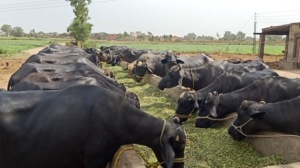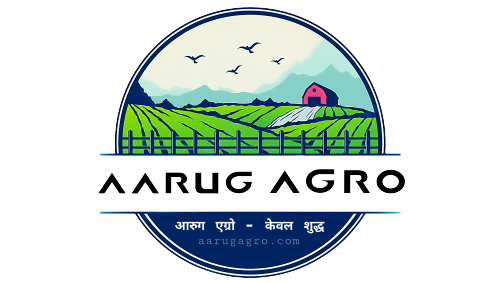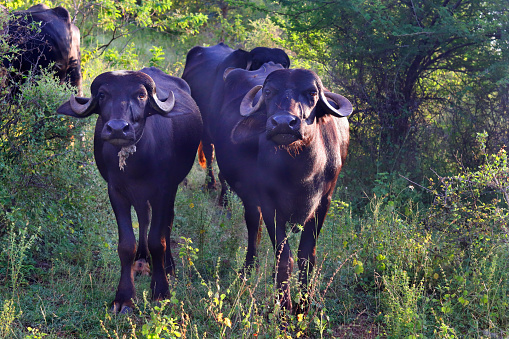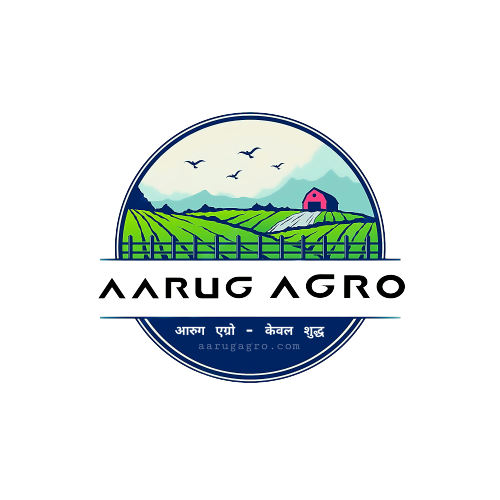Buffalo Dairy Farm: Agricultural labourers and small/marginal farmers rely heavily on dairy farming for their livelihoods. Animal manure is another good source of organic matter for increasing soil fertility and crop yields. Gobar Gas from the waste is used as fuel for domestic objects and for drawing water from the well. Feeding the animals with surplus fodder and farming byproducts is a valuable use of surplus raw materials. Most buffalo farms and transportation operations are powered by bullocks. Agricultural work is mostly seasonal, so buffalo dairy farming provides employment throughout the year for many people. Throughout the year, the dairy is also employed. It is small and marginal farmers as well as landless workers who benefit most from dairy businesses.
Dairy Farm Project Report
The livestock population of India is the largest in the world, and the country is thriving. The country is home to 57.3% of the world’s buffalo population and 14.7% of its cattle population. It is therefore possible to significantly increase milk production through Murrah buffalo farming. We will give you all the buffalo farming tips in this buffalo farming project report. A buffalo farm can be started with its help.
Financial Assistance from Banks for Buffalo Farming

In the case of dairy projects with large outlays, detailed project reports must be prepared. A capital asset item could be the purchase of dairy animals, construction of sheds, or equipment purchase. The initial feeding cost is capitalised and loaned as a term loan. A loan can be taken out for the cost of land improvement, digging, fencing of wells, commissioning of diesel engines/pump sets, servants’ quarters, godowns, electricity connections, transport vehicles, milk processing facilities, etc.
Bank Loan Application for Buffalo Farming Project
A beneficiary can prepare a buffalo farm project report after consulting with local technical personnel at the State Animal Husbandry Department, DRDA, Dairy Co-operative Society/Union/ Federation/commercial dairy farmers. Ideally, beneficiaries should also visit dairy farms in the area and discuss the profitability of dairy farming with government/agricultural university/military dairy farms. Experience in the buffalo farming business and good practical training are highly desirable. Dairy cooperative societies, if present in villages, would provide all necessary support, particularly for marketing fluid milk. Dairy farms should be located near veterinary clinics, artificial insemination centers, and such societies.
Read more : Agriculture related article.
A Dairy Farm Project Report provides details
A dairy farm project report should include the following technical, financial, and managerial information.
1. Technical Needs for Buffalo Business Plan

-
Land & land development (including location, proximity, area, suitability of the site for the road, site maps, etc.)
-
Proposed capacity / No. of milch animals
-
Civil structures (Sheds, office quarters, storeroom, milk room, staff room etc.)
-
Equipment, Machinery and Plant (Chaff cutter, Feed grinder and mixer, Milking pails/milk cans, Silo pit, Milking machine, Biogas plant, Equipment for manufacture of products, Bulk coolers, Truck/van)
-
Housing Type of housing (age range – Adults, calves (no more than 1 year old), and heifers (1-3 years old)
-
Animals (Source of purchase, Proposed species, Proposed breed, Place of purchase, Distance, Cost of buffalo)
-
Production parameters (Milk yield (Ltrs. per day), Order of lactation, Conception rate, Lactation days, Dry days, Mortality(%) – Adults, Youngstock)
-
Breeding Facilities (Capacities, Availability of semen, Staffing, Source, Expenditures per animal/year)
-
Feeding (Source of fodder and feed – Dry fodder, Green fodder, Concentrates. Fodder crop rotations- Summer, Kharif, Rabi. Fodder cultivation expenses, costs and Requirement)
-
Veterinary Aid Source (Services available, Location-Distance (km), Facilities available, If own arrangements are made, Employed a stockman/veterinary doctor/consultant, Periodicity of visits, The cost of one animal per year)
-
Water (the source, availability, quality, cleaning and fodder production, the type of structure, the design, and the cost)
-
Electricity (Source, connected load, approval from SEB, problems with power outages, generator arrangements)
-
Marketing of other products (Age, price expected, place of sale, Manure qty./animal, price per unit (Rs.), Empty gunny bags-number, cost per bag (Rs.)
-
Marketing of milk (Source of sales, Distance (km. ), Price Realized – (Rs. per liter), Place of Disposal, Basis of Payment, Periodicity of Payment
2. Financial Needs to Start a Buffalo Dairy Farm
-
Financial viability (Net Present Value, Internal Rate of Return, Benefit-Cost Ratio)
-
The financial position of the borrowers (income tax, debt equity ratio and other tax obligations paid up to date, profitability ratios, current audit)
-
Lending Terms (Rate of Interest, Nature of Security, Repayment Period, Grace Period)
3. Managerial Overview in Buffalo Farming India
( A ) Borrower’s profile:
-
Individuals/cooperative societies/corporations/partnerships/companies/others
-
The proposed capability for handling business
-
Experience in the proposed activity
-
Soundness of the financial system
-
Qualifications specific to a particular field
dequacy of managerial/technical staff
(B) Others:
-
Financial institution’s name
-
Providing training facilities for buffalo farmers
-
State and federal government support is available
-
If there are any regulatory approvals, etc.
4. Appraisal of the Project Report for a Dairy Farm
You should present the scheme to your nearest bank branch. The bank’s officer can assist in preparing the plan or completing the prescribed application form. Afterward, the bank will assess the scheme’s technical feasibility and financial viability.
5. Sanction and Disbursement of Bank Loan
The bank approves the scheme after ensuring its financial viability and technical feasibility. A loan is disbursed in kind in 2 to 3 stages in exchange for the creation of specific assets, such as the building of a buffalo shed, the purchase of equipment and machinery, the purchase of animals, and the initial purchase of feeds/fodders. The bank follows up constantly on the end-use of the funds.
6. Dairy Farm Project Report: General Lending Terms
Outlay: Depending on the local circumstances, the unit size, and the elements included in the project, the cost of the scheme will vary. The outlay can be calculated based on prevailing market prices.
Margin Money: Between 10 and 25% of the loan amount is the margin, depending on the class of the borrower.
Interest Rate for an ultimate borrower: It is up to the banks to decide the interest rates within the general guidelines. The interest rate assumed for the model projects is 12 % p.a. for calculating their economic viability and bankability.
Security: Security will be as per RBI guidelines issued from time to time.
Loan repayment period: A scheme’s repayment period is determined by its gross surplus. Loans are repaid in convenient monthly or quarterly installments, usually within five to seven years.
Insurance: Depending on the circumstances, either annual policies or long term policies may be taken out to protect the animals and capital assets.
7. Economics of Dairy Farming

The following is a model buffalo farming project for dairy farming in India with 10 buffalo. The cost of inputs and outputs, as well as field parameters, are shown here. The first thing we should do is look at buffalo farming information.
( A ). The cost of buffalo farming in India
| Cost of buffaloes | 5,00,000 |
| Cost of transportation | 10,000 |
| Animal shed’s construction | 60,000 |
| Calf shed’s construction | 24,000 |
| Chaff cutter and
Equipment’s cost |
60,000 |
| Total | 6,54,000 |
(B).The Techno-Economic Parameters in the Dairy Farm Project Report
| Type of Animal | Graded Murrah Buffalo |
| No. of Animals | 10 |
| No. of animals/batch | 5 |
| Murrah buffalo price (Rs./animal) | 50,000 |
| Transportation Cost/Animal | 1,000 |
| Cost of culled animal | 5,000 |
| Average Milk Yield (litre/day) | 10 |
| Cost of construction per sqft (Rs.) | 120 |
| Floor space (sqft) per adult animal | 50 |
| Floor space (sqft) per calf | 20 |
| Cost of chaff cutter (power-operated) (Rs.) | 50,000 |
| Cost of equipment per animal (Rs.) | 1,000 |
| Veterinary aid/animal/ year (Rs.) | 1,000 |
| Insurance premium (% per annum) | 5 |
| Concentrate feed quantity in one bag(kgs.) | 50 |
| Cost of green fodder (Rs./kg) | 1 |
| Cost of concentrate feed (Rs./kg) | 12 |
| Cost of dry fodder (Rs./kg) | 2 |
| Salary of labourer per month (Rs.) | 4,500 |
| No. of labourers | 1 |
| Electricity cost and water/animal/year (Rs.) | 150 |
| The selling price of milk/litre (Rs./litre) | 26 |
| The sale price of gunny bags (Rs.per bag) | 10 |
| Margin (%) | 25 |
| Rate of interest (%) | 12 |
| Repayment period (years) | 5 |
| Lactation days | 270 |
| Dry days | 150 |
(C) Indian Buffalo Dairy Farming Feeding Schedule
| Type of
feed |
Lactation | Dry | |||
| Price (Rs.) | Qty. (kg) | Cost Per Day (Rs.) | Qty. (kg) | Cost Per Day (Rs.) | |
| Concentrate
Feed |
12 | 5 | 60 | 2 | 24 |
| Green Fodder | 1 | 25 | 25 | 20 | 20 |
| Dry Fodder | 2 | 4 | 8 | 5 | 10 |
| Total | 93 | 54 | |||
ii) Total Concentrate Feed Consumed (Kgs.)
| Year | Lactation | Dry | Total | No. of Gunny Bags |
| Year 1 | 8,250 | 300 | 8,550 | 171 |
| Year 2 | 11,250 | 2,700 | 13,950 | 279 |
| Year 3 | 11,250 | 2,700 | 13,950 | 279 |
| Year 4 | 12,000 | 2,400 | 14,400 | 288 |
| Year 5 | 12,000 | 2,400 | 14,400 | 288 |
iii) Dairy Farm / Animal Project Report Lactation Chart
| Year | I Batch | II Batch | ||
| Lactation days | Dry days | Lactation
days |
Dry days | |
| I | 240 | 30 | 90 | 0 |
| II | 240 | 120 | 210 | 150 |
| III | 210 | 150 | 240 | 120 |
| IV | 210 | 150 | 270 | 90 |
| V | 210 | 150 | 270 | 90 |
(D). An analysis of the economics of the Murrah Buffaloes Dairy Farm Project
| Particulars | Years | ||||
| 1st | 2nd | 3rd | 4th | 5th | |
| Sale of Milk | 4,29,000 | 5,85,000 | 5,85,000 | 5,85,000 | 6,24,000 |
| Sale of Gunny bags | 1,710 | 2,790 | 2,790 | 2,880 | 2,880 |
| Total | 4,30,710 | 5,87,790 | 5,87,790 | 5,87,880 | 6,26,880 |
| Cost of feeding during
lactation |
1,53,450 | 2,09,250 | 2,09,250 | 2,23,200 | 2,23,200 |
| Cost of feeding during dry
period |
8,100 | 72,900 | 72,900 | 64,800 | 64,800 |
| Veterinary aid and breeding
charges |
10,000 | 10,000 | 10,000 | 10,000 | 10,000 |
| Labour charges | 54,000 | 54,000 | 54,000 | 54,000 | 54,000 |
| Electricity and misc. charges | 1,500 | 1,500 | 1,500 | 1,500 | 1,500 |
| Insurance charges | 25,000 | 25,000 | 25,000 | 25,000 | 25,000 |
| Total | 2,52,050 | 3,72,650 | 3,72,650 | 3,78,500 | 3,78,500 |
| Surplus | 1,78,660 | 2,15,140 | 2,15,140 | 2,09,380 | 2,48,380 |
( E ). An analysis of the Buffalo Dairy Farm Project’s BCR and IRR
| 1st | 2nd | 3rd | 4th | 5th | |
| Capital
Costs |
6,54,000 | ||||
| Recurring
Cost |
2,52,050 | 3,72,650 | 3,72,650 | 3,78,500 | 3,78,500 |
| Total
Costs |
9,06,050 | 3,72,650 | 3,72,650 | 3,78,500 | 3,78,500 |
| Buffalo Farming Profit | 4,30,710 | 5,87,790 | 5,87,790 | 5,87,880 | 6,26,880 |
| Net
Buffalo Farming Profit |
-4,75,340 | 2,15,140 | 2,15,140 | 2,09,380 | 2,48,380 |
Profit margin calculation in dairy farming business = Total Earnings – Total Cost = 8,60,560 – 4,75,340 = 3,85,220
Total Earnings of 5 years = 2,15,140 + 2,15,140 + 2,15,140 + 2,15,140 = 8,60,560
Note: There may be changes to the information provided over time, as it is provided for educational purposes only.


